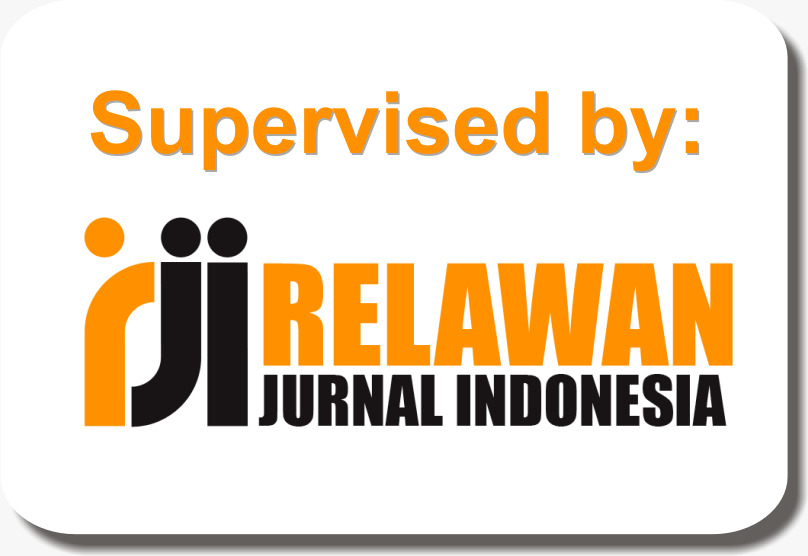Analisis Cluster Pada Pengelompokan Siswa Diktuk Bintara Polri TA. 2018/2019, SPN Singaraja - Polda Bali Menggunakan K-Means dan K-Harmonic Means
Abstract
Education is basically one step to improve and develop all aspects of human beings. Education is not only in the form of science, but also in the form of values, skills and attitudes, so that in education it is expected to be able to make a person intelligent, skilled and be able to behave according to the prevailing norms. Mathematics is one of the subjects taught since elementary school education. Geometry and measurement are aspects of basic competencies found in elementary school mathematics learning ranging from class I to class VI. To make a child have good geometry measurement skills, the teacher (parent, teacher or family) must have a means or media that can train children's geometry measurement skills in an interesting and fun way. The purpose of this study was to create a media to train geometry measurement capabilities, especially for class V through an Android-based application, the application created was packaged in the form of an educational game. The game was developed using SDLC with V-models and the game was tested through blackbox, installation tests and questionnaires.
Keywords
Full Text:
PDFReferences
Abror, A. F. (2012). Mathematics Adventure Games Berbasis Role Playing Game (Rpg) Sebagai Media Pembelajaran Mata Pelajaran Matematika Kelas VI SD Negeri Jetis, 10.
Adiwijaya, M. (2015). Perancangan Game Edukasi Platform Belajar Matematika Berbasis Android Menggunakan Construct 2, 6.
Arindiono, R. Y., Ramadhani, N., & Hakim, J. A. R. (2013). Perancangan Media Pembelajaran Interaktif Matematika Untuk Siswa Kelas 5 SD, 2, 5.
Balaji, S. (2012). Wateerfallvs V-Model Vs Agile: A Comparative Study On SDLC. . . Vol., (1), 5.
Burnette, E. (2009). Hello, Android: Introducing Google’s Mobile Development Platform (2nd Ed). Raleigh, N.C: Pragmatic Bookshelf.
Firdaus, M., & Nugroho, H. W. (2016). Rancang Bangun Game Edukasi Asah Otak Anak Berbasis Android Menggunakan Aplikasi Construct 2, 10.
Handriyantini, E. (2009). Permainan Edukatif (Educational Games) Berbasis Komputer Untuk Siswa Sekolah Dasar, 7.
Jati Alvionita Kartini. (T.T.). Pembuatan Game Edukasi Sejarah Kemerdekaan Indonesia Untuk Kelas V Sekolah Dasar Negeri Kebonromo 1 Kabupaten Sragen Menggunakan Construct 2, 23.
Korhonen, H. (2016). Evaluating Playability Of Mobile Games With The Expert Review Method, 280.
Rahadi, M. R., Satoto, K. I., & Windasari, I. P. (2016). Perancangan Game Math Adventure Sebagai Media Pembelajaran Matematika Berbasis Android. Jurnal Teknologi Dan Sistem Komputer, 4(1), 44. Https://Doi.Org/10.14710/Jtsiskom.4.1.2016.44-49
Korhonen, H., & Koivisto, E. M. I. (2006). Playability Heuristics For Mobile Games. Dalam Proceedings Of The 8th Conference On Human-Computer Interaction With Mobile Devices And Services - Mobilehci ’06 (Hlm. 9). Helsinki, Finland: ACM Press. Https://Doi.Org/10.1145/1152215.1152218
Rifai, W. A. (2015). Pengembangan Game Edukasi Lingkungan Berbasis Android, 140.
Sudarmilah, E., Supriyono, H., Fadlilah, U., Yasin, F., Irsyadi, A., & Fatmawati, A. (2018). Prototyping AR EduGame for children : learning Indonesian culture. 3012, 1–4.
Yadav, R. S. (2012). Improvement In The V-Model. International Journal Of Scientific &Engineering Research, 3(2), 8.
Yunus, M., Astuti, I. F., & Khairina, D. M. (2015). Game Edukasi Matematika Untuk Sekolah Dasar. Informatika Mulawarman : Jurnal Ilmiah Ilmu Komputer, 10(2), 59. Https://Doi.Org/10.30872/Jim.V10i2.192
Kominfo (2015). Indonesia Raksasa Teknologi Digital Asia. https://www.kominfo.go.id/content/detail/6095/indonesia-raksasa-teknologi-digital-asia/0/sorotan_media. Diakses pada 2 Oktober 2018.
DOI: http://dx.doi.org/10.30646/sinus.v17i2.421
Refbacks
- There are currently no refbacks.
STMIK Sinar Nusantara
KH Samanhudi 84 - 86 Street, Laweyan Surakarta, Central Java, Indonesia
Postal Code: 57142, Phone & Fax: +62 271 716 500
Email: ejurnal @ sinus.ac.id | https://p3m.sinus.ac.id/jurnal/e-jurnal_SINUS/
ISSN: 1693-1173 (print) | 2548-4028 (online)

This work is licensed under a Creative Commons Attribution-NonCommercial-ShareAlike 4.0 International License.













